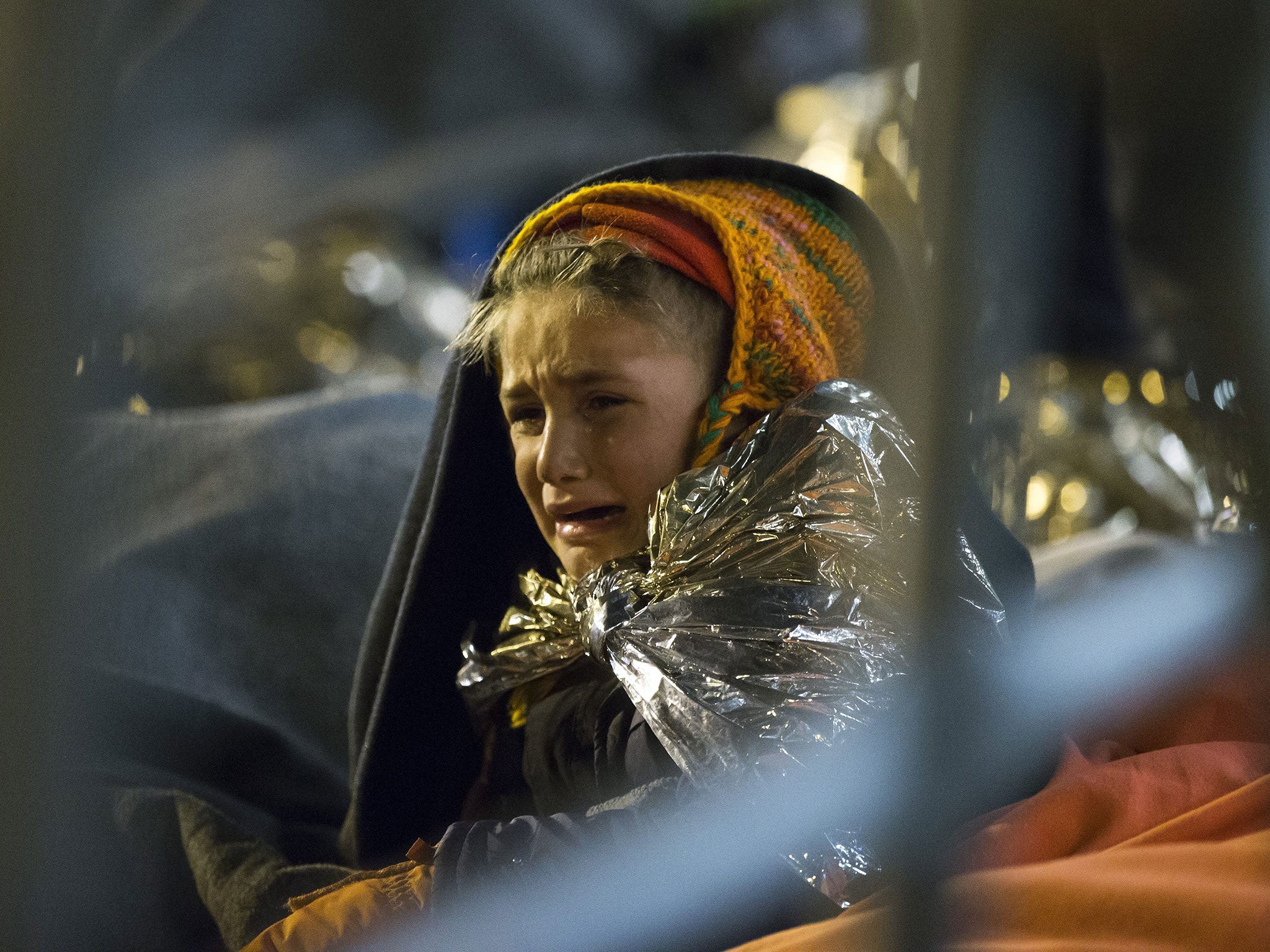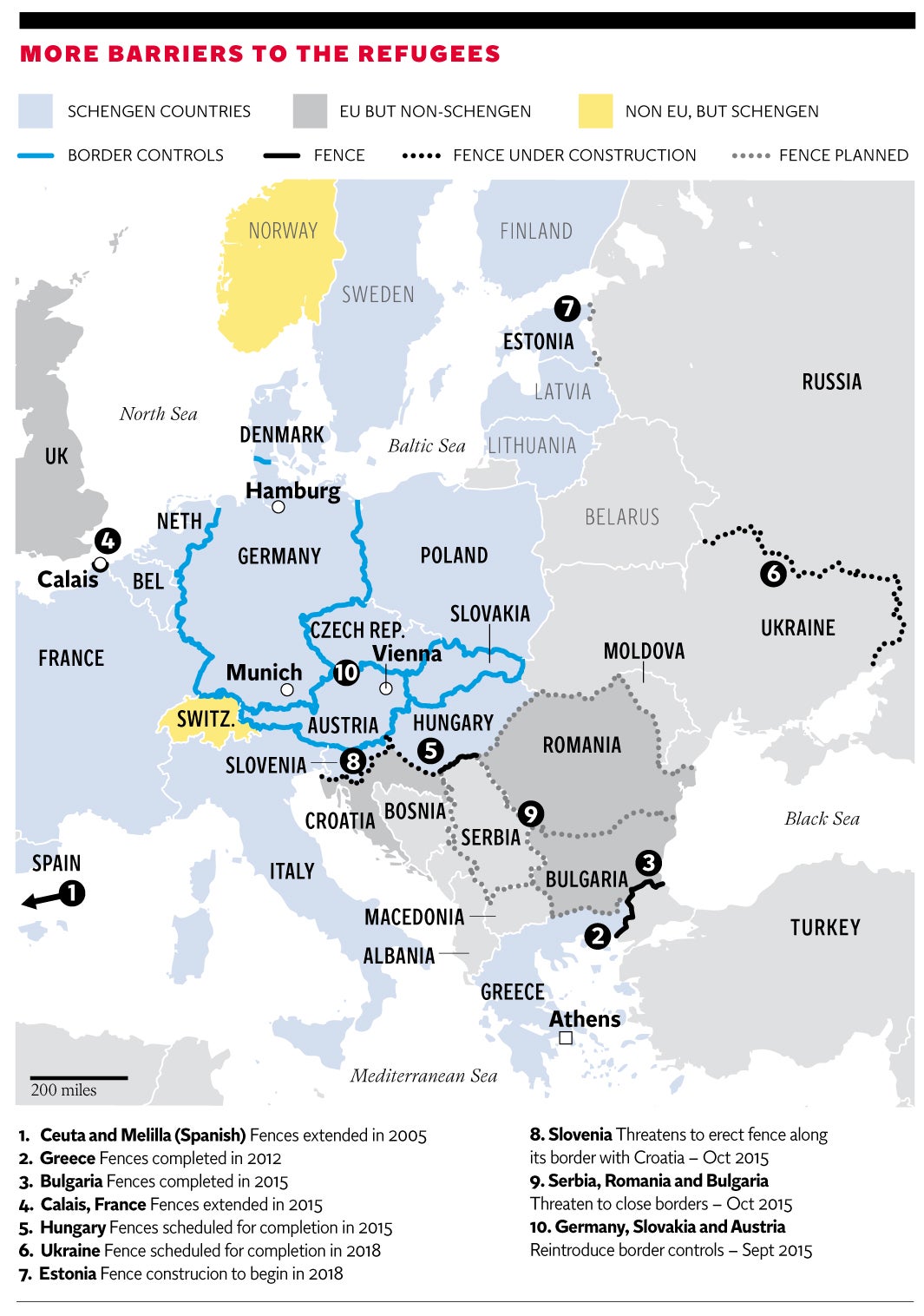Refugee crisis: The map that shows how Europe is becoming a fortress to keep people out
The Balkan states have threatened to close their borders if the refugee crisis is not addressed - they aren't the only ones putting up barriers

New UN figures suggest more than 700,000 refugees have crossed the Mediterranean into Europe in 2015, dwarfing the number of arrivals during the whole of last year in what has become the worst migration crisis since the end of the Second World War.
Children have made up 20 per cent of the total arrivals this year, and 3,210 refugees have either died or gone missing making the journey, the UN High Commissioner for Refugees (UNHCR) said.
EU leaders and Balkan nations met for an emergency summit at the start of this week in a bid to address the situation, but talks broke down amid accusations and recriminations that were even more bitter than usual.
What began with Hungary's razor-wire fence along its border with Serbia has turned into the greatest concerted effort to shut borders into and within Europe since the fall of the Berlin Wall in 1989. The Balkan nations, fearful of becoming “buffer zones” after Germany and Austria reintroduced border controls, have threatened to shut their own doors to arrivals.

European Commission chief Jean-Claude Juncker called Sunday's mini-summit in an effort to agree a set of “common operational conclusions”.
But last week, Slovenia said it will consider all options, including fencing off its border with Croatia, if European leaders failed to agree a common approach.
“We cannot receive so many refugees in such a small period of time. It's just unbearable,” Prime Minister Miro Cerar told reporters outside a refugee camp in Dobova.
Following those comments, Bulgaria, Serbia and Romania issued a joint statement saying they would close their borders if Germany or other countries do the same to stop refugees coming in.
Bulgarian Prime Minister Boiko Borisov announced the decision after meeting his Serbian and Romanian counterparts. He said: “We will not expose our countries to the devastating pressure of millions that would come.”
Bulgaria began building its own border fence earlier this year. While it has not been constructed as quickly as Hungary’s, it will eventually span the full 100 miles of the country’s border with Turkey.
Greece’s own wall with Turkey – only required to span the 6.5 miles of its land border – was completed in 2012.
In Calais, the British Government spent more than £6 million earlier this year extending the metal fence designed to prevent refugees from trying to cross the Channel Tunnel from France to the UK.
Talks this week will continue to seek a solution to the refugee crisis other than turning Europe into a fortress.
At the weekend, two UN human rights experts warned that force cannot be the answer, and instead will only feed into the profits of illegal smugglers.
Francois Crepeau, the UN’s special investigator on migrant rights, and Francisco Carrion, head of the UN Committee on the Protection of the Rights of Migrant Workers, were critical of a UN Security Council resolution allowing the use of force against boats suspected smuggling refugees from Libya.
Creapeau told a news conference humans are “wired for migration”, and said the only way to get rid of smugglers was to offer mobility to refugees and migrants.
He said Europe should implement massive refugee resettlement programs from transit countries over many years and crack down on unscrupulous employers hiring cheap migrant labour.
Join our commenting forum
Join thought-provoking conversations, follow other Independent readers and see their replies
Comments